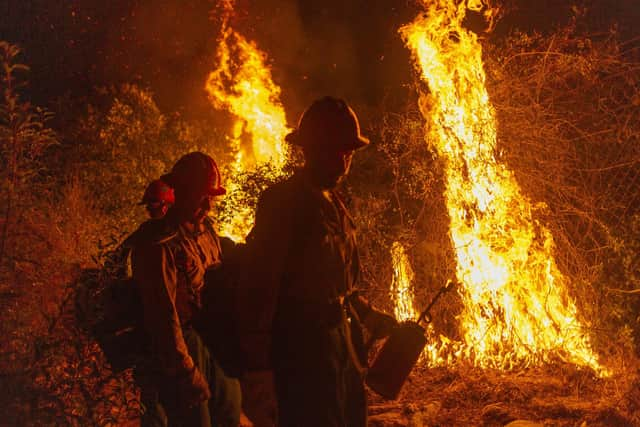Climate change: Ukraine War and other crises must not be used to distract us from the need to act – Scotsman comment
This article contains affiliate links. We may earn a small commission on items purchased through this article, but that does not affect our editorial judgement.
However, given that, unchecked, the rise in temperature will eventually become an existential threat, we cannot allow ourselves to become overly distracted.
For years, many scientists and politicians insisted that while this was a serious threat, it was also a solvable problem. Unfortunately, the idea that failure is almost unthinkable may have contributed to a sense of complacency among a general population convinced that world leaders would never allow the situation to risk spiralling into unstoppable ‘runaway’ climate change.
Advertisement
Hide AdAdvertisement
Hide AdScientists may have made a flawed assumption that most people are as rational as they are, over-estimating humanity’s ability to act in our own self-interest, however obvious it might seem to them.
But that sense of optimism has been shifting. A survey by the leading scientific journal Nature, published in November, found 60 per cent of Intergovernmental Panel on Climate Change scientists thought the world would see three degrees Celsius of warming by 2100; 17 per cent said they questioned whether they should have children.
One reason for this is perhaps a growing recognition that the real world is far removed from the scientific one: a home to conspiracy theorists, foolishly arrogant leaders in the style of Donald Trump, and murderous tyrants like Vladimir Putin, with grand plans of their own.
After Putin’s invasion of Ukraine sent the price of fossil fuels soaring, there were calls in the West to increase production.


However, six months on from the COP26 climate summit in Glasgow, its president, Conservative MP Alok Sharma, returned to the city to make almost the opposite case.
The Ukraine War, he said, had revealed “the dangers of energy systems powered by foreign fossil fuels” but also the “benefits of low-cost, homegrown renewables, the price of which cannot be manipulated from afar”. And he stressed the world must respond to the “chronic danger” of climate change even as it deals with other major crises.
There are signs the Ukraine War is leading to an acceleration of the transition to renewable energy, but also a worrying sense among some that action must be delayed.
The problem is we have been too complacent and delayed for too long. We need to listen to people like Sharma before it really is too late.
Comments
Want to join the conversation? Please or to comment on this article.
